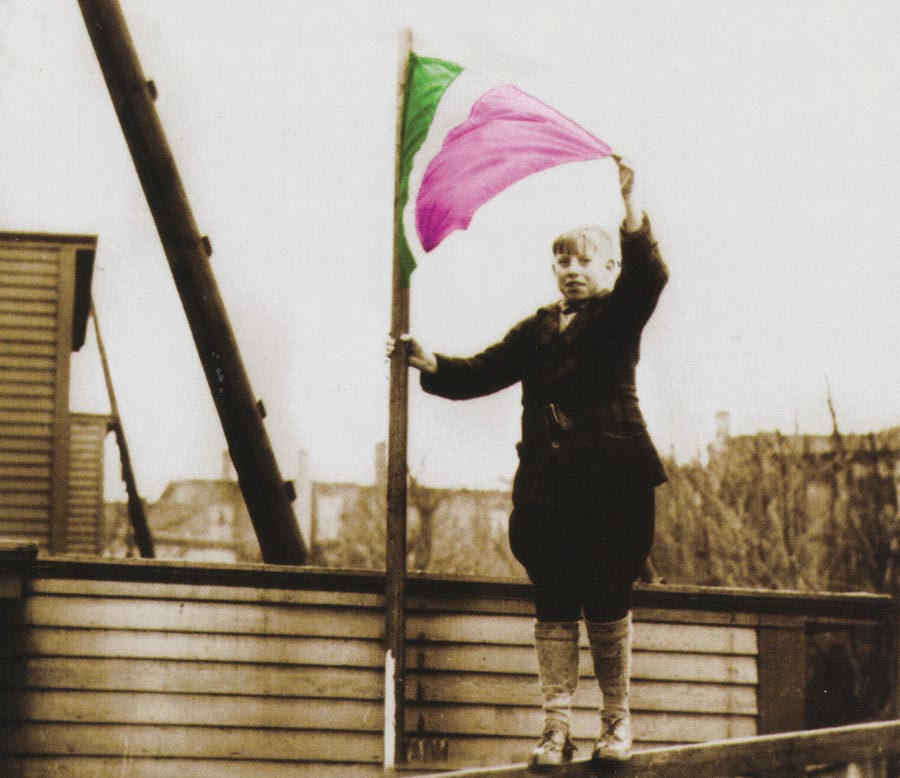By: Ben Cleary
Twenty minutes off the Salmonier Line, in front of a quaint cabin overlooking Ron’s Pond (named after my Grandpa), three colours dance against a flagpole – pink, white and green.
The unofficial flag of Newfoundland was said to have flown at half-mast when Canada joined Newfoundland in 1949.
Not many ‘glory days’
Inside the cabin, my Grandma will probably be smoking a cigarette and listening to the news. If the opportunity comes up she loves to remind me, or anyone else who asks, that she was born in Newfoundland, and is a Newfoundlander.
This cues a moment of silence. “Newfoundland was a country before she was a province of Canada.”
Beyond that it seems like Newfoundland has never had many ‘glory days.’
Grandma never looks back and talks about the 1960s or ’70s like they were a walk in the park, money hasn’t ever grown on trees, or in our case, off the end of a hook. But being born a true Newfoundlander makes my Grandma proud.
So I ask myself, on the eve of the 70th anniversary of confederation, why we don’t use our independence as a bargaining chip at the negotiating table with Canada – after all we see Quebec doing it all the time.
‘A good landing spot’
Our oil money won’t last forever, the hydro goes to Quebec, and fisheries management has been terrible – the reasons are there to ask ourselves whether this is a healthy relationship, one that has been going on since Newfoundland and Labrador joined Canada on April 1st, 1949.
Times were tough in the years leading up to the marriage. Throughout the 1930s Newfoundland, like the rest of the world, was hit hard by the Great Depression.
On top of that, Newfoundland took on huge debts from the First World War and building a cross-island railway, to the point that in 1934 Newfoundland voluntarily gave up her democracy in favour of a government by appointed commission.
On that note, we are the only Dominion to ever give up its self-governing status and put power back in the hands of the United Kingdom. Ever.
After the Second World War Britain decided it had had enough of worrying about us Newfoundlanders, and figured Canada would be a good landing spot for the old country.
A referendum was held on June 3, 1948 and 44.6 per cent of voters supported the restoration of Responsible Government (independence), while 41.1 per cent voted for Confederation with Canada.
The vote was so tight that a second referendum was held on July 22, and 52.3 per cent voted for Confederation, while 47.7 per cent opted for a return self-governance.
Playing devil’s advocate
The rest is history.
Now I’m not a separatist. I like Canada. I’m not saying we should cut our losses and wave goodbye (like my Grandma). But wouldn’t it be nice for someone to play the bad cop and raise the idea, to play devil’s advocate?
We don’t have to separate from Canada guns blazing, but the threat alone works for Quebec.
I’ve always gotten the sense that Canada has treated us like they did us a favour by taking us in in 1949.
In 2003, a royal commission reviewed Newfoundland and Labrador’s place in Canada, concluding the province can make a legal case for seeking exceptional treatment because of the way the Terms of Union were negotiated.
“The terms of Confederation were negotiated between St. John’s and Ottawa at a time when Newfoundland had not recovered its sovereignty and was operating under severe disadvantages vis-à-vis both Britain and Canada.”
So if we were at a disadvantage when we joined Canada, why not ask for a bigger piece of the pie – or threaten to make our own.
